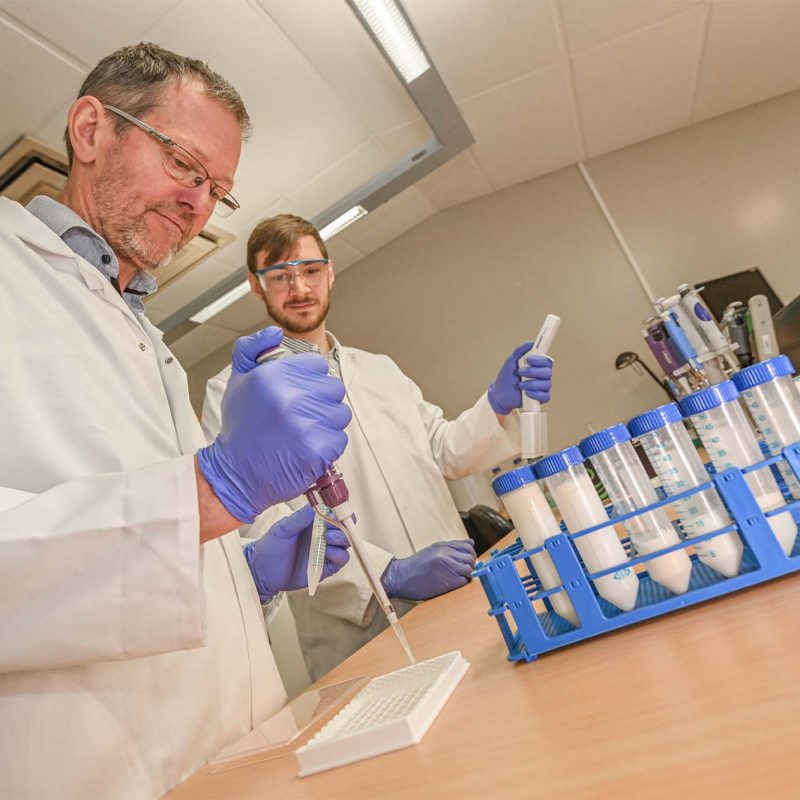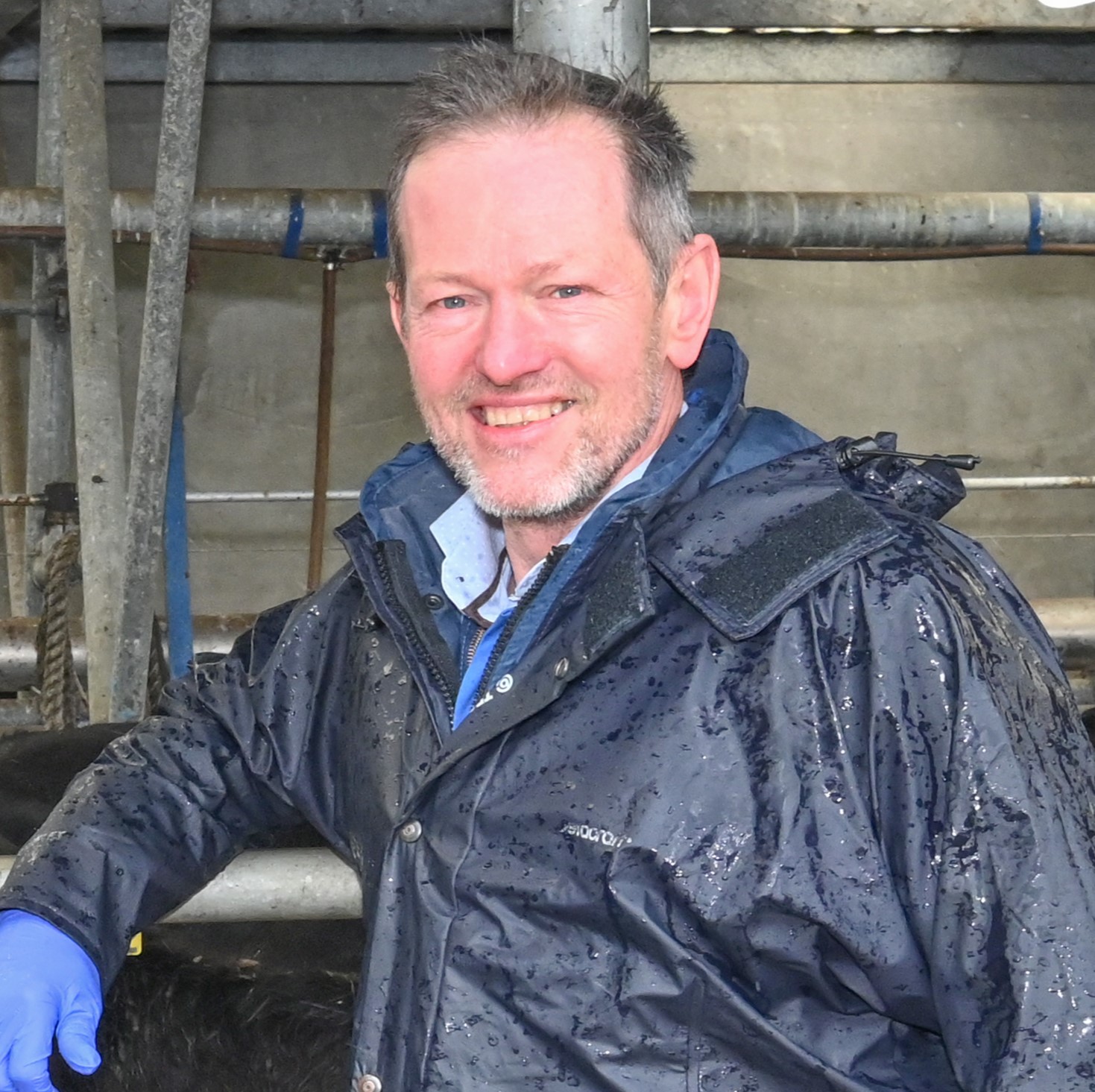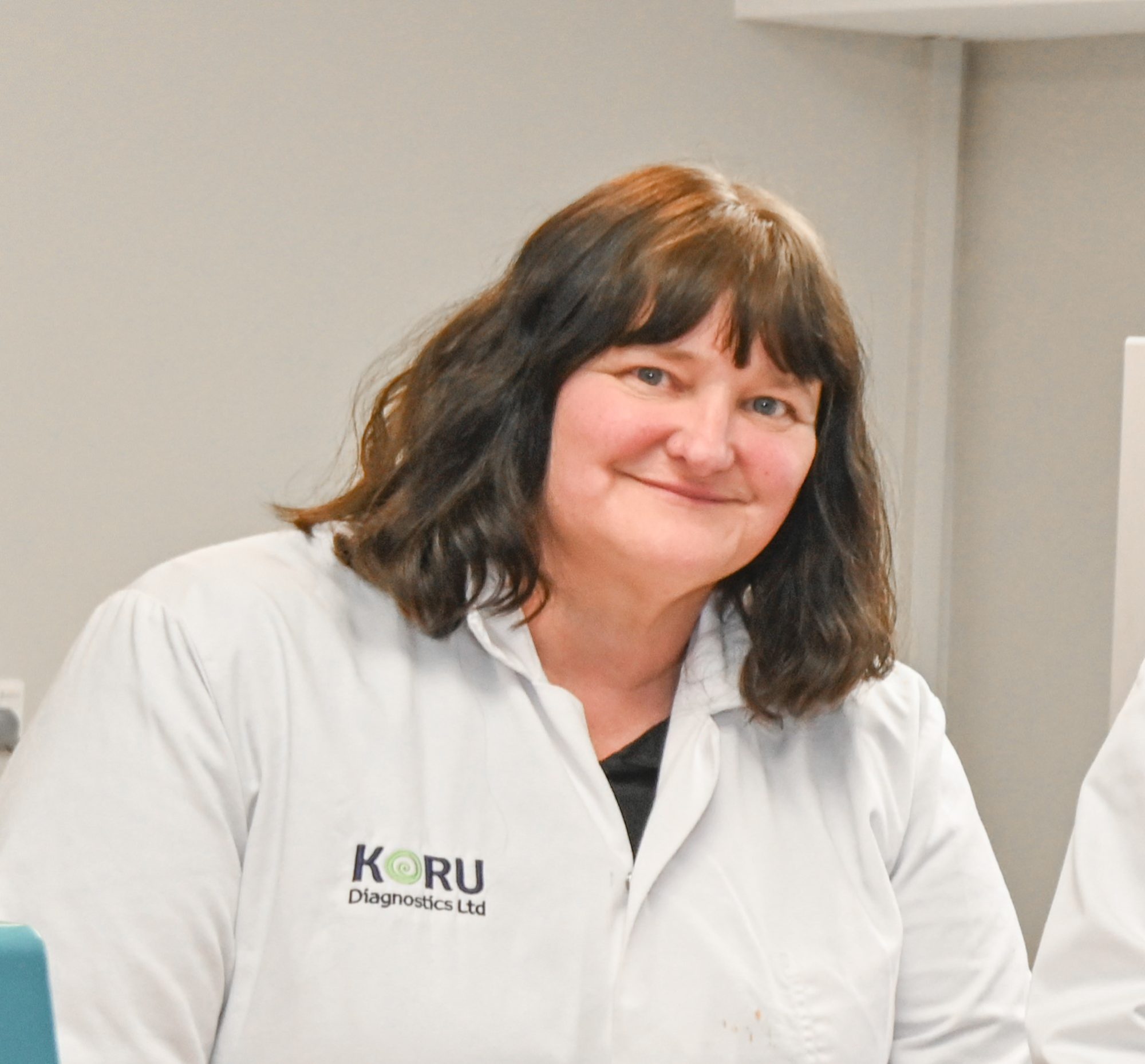About
StaphGold developer Koru Biotech is based in New Zealand, where it develops innovative diagnostic solutions for the global dairy sector.
Mastitis costs the world’s dairy industry $30 billion a year. In 2018, driven by a desire to help embattled farmers and dairymen fight a problem that they often can’t see, the team at Koru Biotech began work on developing a new diagnostic tool that could utilise the milk samples already being handled by herd testing laboratories around the world.
Research and development focused on a more accurate screening test for Staphylococcus aureus, the bacteria most commonly associated with contagious, subclinical mastitis, a major source of financial loss.
Working closely with a large herd testing company, and using its unique expertise, Koru developed the StaphGold ELISA test over a period of three years

It is the most accurate test available for detecting contagious Staphylococcus aureus mastitis, and better still, it uses herd test milk samples already being analysed – no on-farm aseptic sampling is required.
The strength of the Koru StaphGold ELISA lies in the way it detects the infection. Other tests rely on identifying the S. aureus pathogens themselves, but because the bacteria can be elusive to detect, these tests sometimes fail to identify a positive result. Conversely, sample contamination or sample ‘carryover’ can deliver false positive results when using PCR or microbiological culture media, which are better suited to identifying acute, clinical mastitis cases.
The Koru R&D Team developed a test that identifies S. aureus-specific antibodies, biomarkers of the animal’s immune response to an S. aureus infection. In the herd testing context, this novel approach enables the StaphGold ELISA test to outperform conventional tests, in terms of sensitivity and accuracy.
For farmers, this allows improved decisions on herd management and animal treatment, which in turn delivers financial and animal health benefits.
The team at Koru Biotech is proud to stand by the ground-breaking test it has worked so hard to develop.
Click below to find out more.
Our Team
Koru Biotech is made up of passionate professionals who are proud and excited to be delivering innovative diagnostic solutions to the global dairy industry. Meet its highly-qualified team of science leaders.

Dr Tony Pernthaner
Having grown up on a dairy farm, Tony has a special affinity with agriculture. He followed his passion via a Dr Med Vet degree in veterinary medicine, and a post-graduate Venia Docendi veterinary teaching qualification, ultimately leading to the role of Ao. Professor in Internal and Infectious Diseases of Cloven-hooved Animals at the University of Veterinary Medicine Vienna, Austria. In a decade of working closely with farm animals, he gained specialist knowledge of mastitis and other internal, infectious bovine diseases.
An 18-year period at AgResearch (NZ) then saw him extend into animal health, focusing on host/pathogen and host/parasite interactions. He has more than 50 publications in peer-reviewed journals, has presented at over 40 conferences, and is an inventor on six patents. Tony loves working on novel approaches to problem-solving that benefit the agricultural industry.

Dr Suzanne Hurst
Sue has led or been part of science projects funded by the governments of Canada, the United Kingdom or New Zealand, but her interest in science was sparked years earlier in the classroom, with an explosive reaction between sodium metal and water! Since then, she has completed a BSc in Applied Biochemistry (UK) and a PhD in Medical Biochemistry (Canada). Sue has worked for both academia and Crown Institutes in the United Kingdom, and upon emigrating to New Zealand, held key positions with AgResearch and Hort Research (now Plant & Food). She has also been involved in science projects resulting in over 50 peer-reviewed scientific publications.
Her role at Koru is to discover and develop new scientific knowledge and technology to support the development of novel diagnostic assays for specific biomarker detection in animal and human diseases.